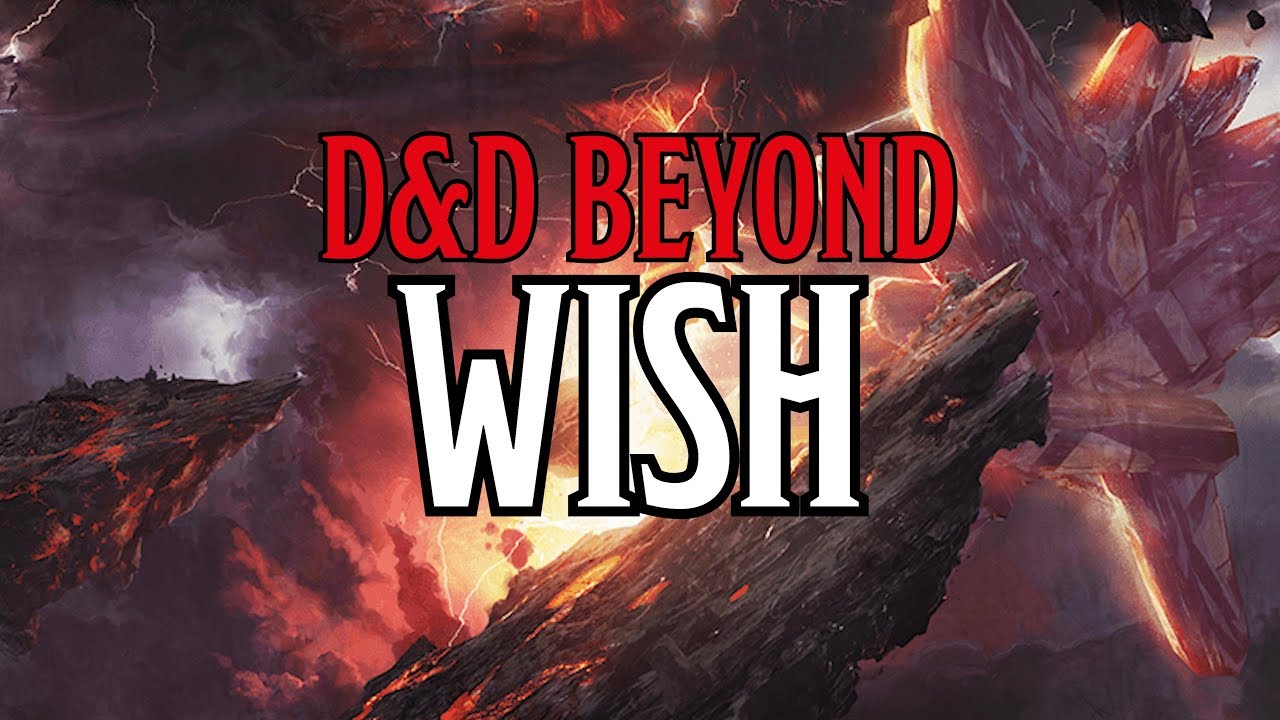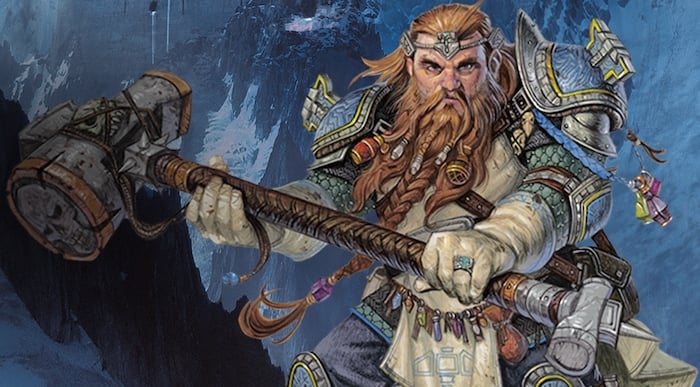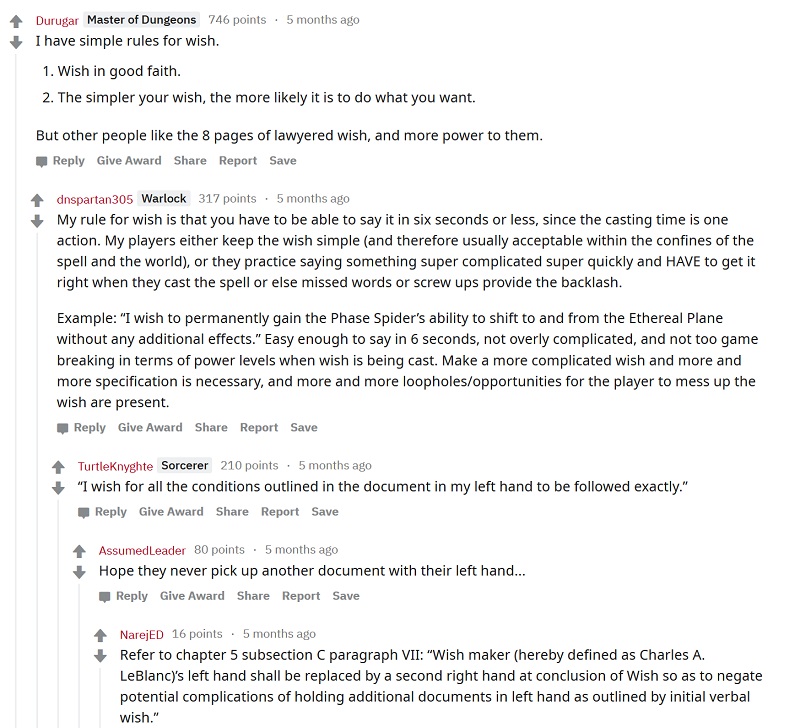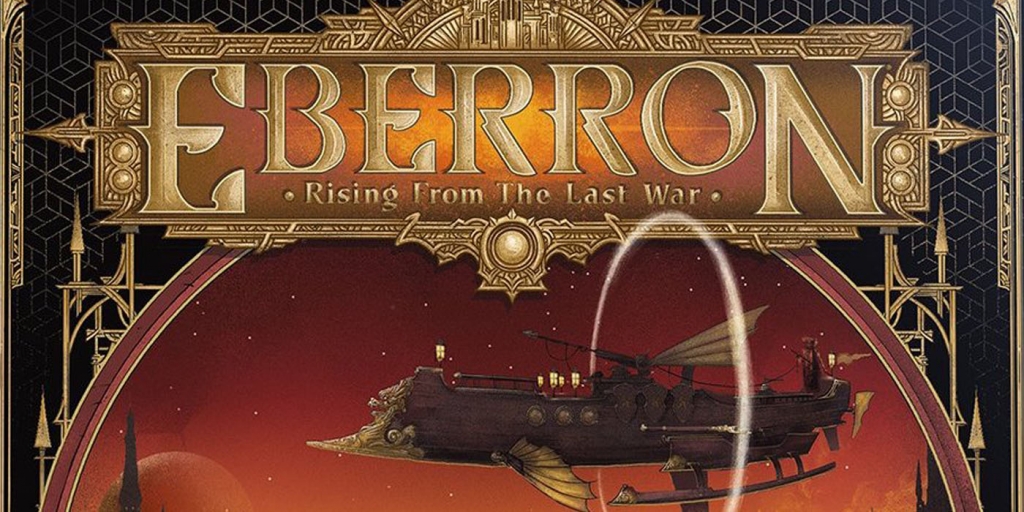D&D: Bending Reality – Divine Intervention and Wish

When characters in D&D get powerful, they can bend reality. But messing with the primal forces of creation is tricky–here’s how the D&D team handles it.
Power corrupts, and in D&D there’s nothing quite so powerful as being able to meddle with the primal forces of creation in the universe. But why does something as simple as “using the class features that the rules give me access to” seem to carry with it an almost adversarial attitude? Why do high-level Clerics and Wizards find themselves hesitating before reshaping reality? Why do some DMs have trouble with things like Wish and Divine Intervention? These questions are at the heart of a couple of interviews with 5th Edition’s lead rules designer Jeremy Crawford.
Divine Intervention is the ability that all Clerics get at 10th level to call on their chosen deity to intervene in their affairs and try and reshape things. This, naturally, is a place for the DM to get creative with interpreting what the player asks for and what actually happens. Ordinarily, I take issue with the idea of needing to “lawyer up” for something like casting Wish–but I love Crawford’s take on this.
Clerics are a questgiver class, and their deity’s actions when called on to intervene in the world should help to further the adventure. There’s a playful attitude here, and it takes into account the attitude and beliefs of the deity as much as the Cleric, resulting in a cool storytelling opportunity. After all, with Divine Intervention’s slim chance to succeed in the first place, when it happens it’s usually a swing-for-the-fences shot to make something big happen.
Wish on the other hand is one of those powers that has a long history of lawyering. And it’s something that comes out of fables–the best example is straight out of the Monkey’s Paw: if you wish someone came back to life and aren’t careful you’re just asking to get hubris-ed. Only not really. The whole reason behind these stories is to convey the idea that you should perhaps be careful what you wish for–which if you unpack it further, goes into the whole “desire is the root of all suffering.”
Buried in the story of wanting a dead friend back to life or wishing for something egregious and having your wish twisted back upon you is the idea that you should learn to be content with what you have. But gamers are a special bunch of people and the lesson in these situations is instead: come up with an inviolate contract that restricts the universe from messing with you.
Go to any forum and post about Wish and you’ll find a discussion like this one:
It all comes back to the old 1st Edition mindset where the relationship between player and DM was an adversarial one, in spite of what a dedicated few designers like Moldvay and Browne and Ward encouraged. And D&D has spent the last four editions chipping away at that concept. So much so that Wish is a gentler spell now. It can easily just do whatever magic you need up to 8th level–as long as it’s a spell. Anything more than that and you have a 33% chance to never cast the spell again–but something always happens. And usually, it’s in line with what the player intends, though caution is still generally advised.
With so much power on both sides, Wish can be contentious, but it can be fun too. We turn the question over to you:
How do you handle abilities like Wish or Divine Intervention? Let us know in the comments!




